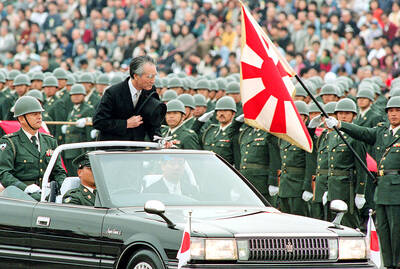Venezuelan President Hugo Chavez said on Tuesday he expects his country will vote in late February on a constitutional amendment letting him stay in office as long as he keeps winning elections.
“In February, at the end of February, I think we should be ready for the referendum ... on the constitutional amendment,” Chavez said during a televised speech.
Chavez lost a similar bid to amend the Constitution last year and will have to leave office in 2013 if he loses the upcoming vote.
He can propose the amendment referendum to the electoral authority either by collecting some 2.5 million signatures supporting it or through a request backed by 30 percent of Congress, dominated by Chavez allies.
Chavez said on Tuesday he has not yet decided which mechanism he will use.
The electoral authority would have to call the referendum 30 days after receiving the proposal.
Chavez launched his referendum campaign this week after regional elections last month in which opposition leaders won key states and the capital of Caracas, although Chavez allies swept most municipalities.
Meanwhile, Russian warships have ended exercises with the navy in Moscow’s first such Caribbean deployment since the Cold War.
Russian TV on Tuesday showed images of a Venezuelan-operated Sukhoi fighter jet swooping low over Russian warships in a simulated air attack.
The exercises concluded with a fireworks display. They had included an air defense exercise and joint actions to spot, pursue and detain an intruding vessel, Russian navy spokesman Captain Igor Dygalo said.
The joint naval exercises featured helicopters dropping special forces soldiers onto a ship as if it had been “seized by terrorists,” a report on state-run Rossiya television said.
The TV report said the Russian squadron left the area.

The Venezuelan government on Monday said that it would close its embassies in Norway and Australia, and open new ones in Burkina Faso and Zimbabwe in a restructuring of its foreign service, after weeks of growing tensions with the US. The closures are part of the “strategic reassignation of resources,” Venezueland President Nicolas Maduro’s government said in a statement, adding that consular services to Venezuelans in Norway and Australia would be provided by diplomatic missions, with details to be shared in the coming days. The Norwegian Ministry of Foreign Affairs said that it had received notice of the embassy closure, but no

A missing fingertip offers a clue to Mako Nishimura’s criminal past as one of Japan’s few female yakuza, but after clawing her way out of the underworld, she now spends her days helping other retired gangsters reintegrate into society. The multibillion-dollar yakuza organized crime network has long ruled over Japan’s drug rings, illicit gambling dens and sex trade. In the past few years, the empire has started to crumble as members have dwindled and laws targeting mafia are tightened. An intensifying police crackdown has shrunk yakuza forces nationwide, with their numbers dipping below 20,000 last year for the first time since records

EXTRADITION FEARS: The legislative changes come five years after a treaty was suspended in response to the territory’s crackdown on democracy advocates Exiled Hong Kong dissidents said they fear UK government plans to restart some extraditions with the territory could put them in greater danger, adding that Hong Kong authorities would use any pretext to pursue them. An amendment to UK extradition laws was passed on Tuesday. It came more than five years after the UK and several other countries suspended extradition treaties with Hong Kong in response to a government crackdown on the democracy movement and its imposition of a National Security Law. The British Home Office said that the suspension of the treaty made all extraditions with Hong Kong impossible “even if

Former Japanese prime minister Tomiichi Murayama, best known for making a statement apologizing over World War II, died yesterday aged 101, officials said. Murayama in 1995 expressed “deep remorse” over the country’s atrocities in Asia. The statement became a benchmark for Tokyo’s subsequent apologies over World War II. “Tomiichi Murayama, the father of Japanese politics, passed away today at 11:28am at a hospital in Oita City at the age of 101,” Social Democratic Party Chairwoman Mizuho Fukushima said. Party Secretary-General Hiroyuki Takano said he had been informed that the former prime minister died of old age. In the landmark statement in August 1995, Murayama said